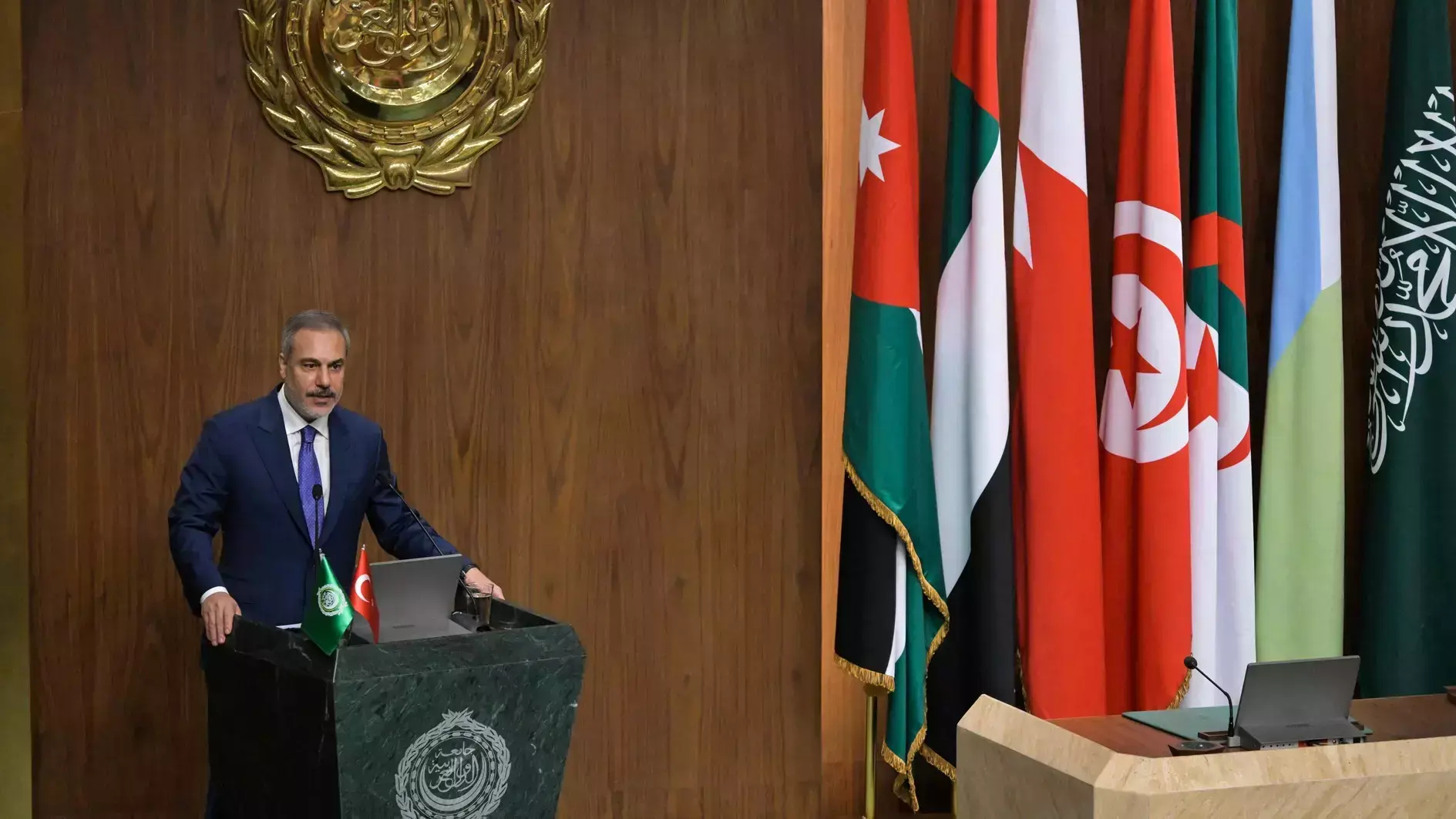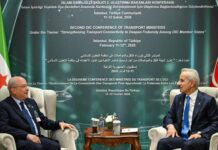
Assad Foreign Minister Faisal Mekdad and two diplomats from the Assad regime delegation walked out of an Arab League meeting in Cairo on Tuesday, as Turkish Foreign Minister Hakan Fidan prepared to deliver a speech. This marked the first Turkish participation in such a gathering in 13 years, signaling a significant moment in regional diplomacy.
The meeting, held on September 10, was part of ongoing efforts to address key issues in the region, including the recent calls by Turkish President Erdogan to form an “Islamic alliance” against Israel’s regional ambitions.
Video footage aired by Al Arabiya Al Hadath showed Mekdad and his delegation leaving their seats just as Fidan headed to the podium. Despite the symbolic departure, a member of Assad’s delegation remained in the hall, listening to the Turkish Foreign Minister’s remarks.
This diplomatic maneuver underscores the continued tensions between the Assad regime and Turkey, despite ongoing attempts at rapprochement. Talks between the two countries have been fraught with challenges, particularly Assad’s demand for a full Turkish military withdrawal from northern Syria as a precondition for restoring relations.
In recent months, both sides have signaled a willingness to explore closer ties. In late June, Turkish President Erdogan expressed his openness to meet with Bashar al-Assad, while Damascus responded with cautious optimism, describing the relationship between the two countries as “normal,” not needing “normalization” per se. Still, Assad’s government has remained firm on the “withdrawal of Turkish forces from Syrian territory” as a non-negotiable condition.
The tension at the Arab League meeting comes just days after Erdogan called for the creation of an “Islamic alliance” to counter Israel’s “expansionist ambitions” in the region. In a speech on September 7, Erdogan described standing against Israel as an “Islamic duty” and linked Turkey’s efforts to mend ties with Egypt and Syria to the broader goal of confronting Israeli influence.
This proposal received mixed reactions across the region. While Erdogan emphasized the need for Islamic countries to unite against what he described as Israeli “terrorism,” Israeli Foreign Minister Israel Katz denounced the comments as “dangerous incitement.”
Mekdad responded to Erdogan’s call in an interview with Russia Today, expressing hope for solidarity among Assad’s regime, Egypt, and Turkey, while reiterating the regime’s condition that Turkey must first withdraw its military forces. “Turkey must adhere to the requirements for reaching cooperation, which is its withdrawal from Syrian territory,” Mekdad stated, emphasizing that any further cooperation hinges on this issue.
The current Assad-Turkish relationship is part of a diplomatic realignment in the region, involving Russia, and Iran, among other key players. Though progress has been made in diplomatic channels, such as ministerial and intelligence-level meetings, Assad’s insistence on Turkey’s withdrawal remains a stumbling block.
The Arab League meeting in Cairo provided opportunities to resolve the unresolved tensions continuing to shape Syrian-Turkish relations. However, Mekdad’s walkout is evidence of the continued fragility of the ongoing talks, even as both countries express a desire for a cooperative future.








